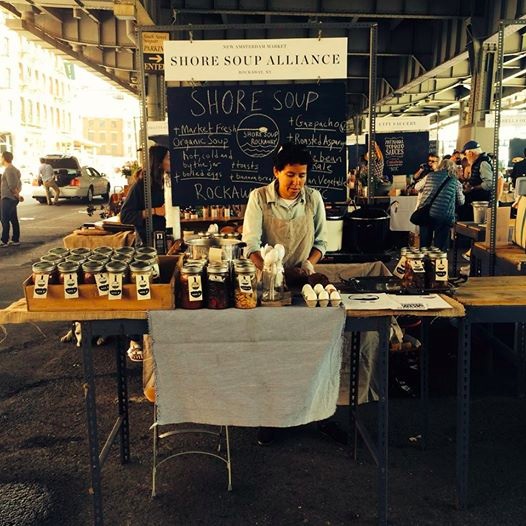We've come to believe that, no matter how hard it can be to accept change, it usually contributes to our growth, and is inherently a good thing. But how do you bring change, especially good change, about? While we certainly never wish for a natural disaster to happen, the resulting efforts to band together and help those in need are always inspiring. And, more often than not, such incidents inspire change. Robyn's story is just one example, and it has us craving a warm cup of soup.
When did you know that you wanted to work in food?
Growing up, some of the members in my community were affected by serious illnesses. My curiosity led me to discover that healthy food and nutritious eating can help prevent some common health problems that our society faces today. This set me on a career path in food and wellbeing, which is now really a lifestyle, and is why I aspire to create long-term, sustainable access to healthy food for all.
How did you get your current good food job?
As a resident of the Rockaways in New York, I started Shore Soup in the wake of Hurricane Sandy to provide emergency meals to fellow residents in the area. In the 6 months following Hurricane Sandy, we distributed more than 50,000 free meals door-to-door with the help of 400 volunteers. Recognizing that many of the socio-economic issues were prevalent in the Rockaways prior to the disaster, I decided to spearhead the transition of Shore Soup from a soup kitchen in my apartment into a non-profit organization. Today, we continue to deliver more than 750 meals each week to Rockaway residents in need. We also sell Shore Soup at farmers' markets and local food stores to generate revenue to support our social mission.
How did your previous work or life experience prepare you for a good food job?
I have always had an interest in food, nutrition, the community and the environment. Prior to founding Shore Soup, I co-owned and operated a successful boardwalk business in Rockaway Beach called Shore Fruit. Shore Fruit was a sustainable zero waste business; we sold freshly cut organic fruit kebabs via means of a pedal powered tricycle cart and composted all our waste. I am also very creative in the kitchen; I have travelled extensively to apprentice with chefs from all around the world who work among different cultures and with different cuisines, including in London, the Bahamas, Australia and Malaysia.
What was the greatest obstacle you had to overcome in pursuing your Good Food Job dream?
Running your own organization can be very challenging! However there has been-and continues to be-an overwhelming amount of support for Shore Soup coming from the community. This support has come from many different people and in many different forms-volunteers help in the kitchen and community garden, local businesses provide in-kind and financial support, and art galleries and local artists have partnered with us to host community dinners and nutrition workshops. These interactions have allowed me to tap into the shared economy and encouraged me to persevere with Shore Soup to better address food insecurity in the Rockaways.
What can you identify as the greatest opportunities in food right now?
One of the greatest opportunities in food right now is supporting the food justice movement, which advocates that everyone has the right to grow, eat, and sell healthy food. Practicing food justice can lead to a strong local food system, self-reliant communities, and a healthy environment. Having already run a successful pay-as-you-can food truck, something that's been on my mind is creating a pay-as-you-can restaurant where people from all walks of life can enjoy and share nutritious, local food, regardless of their socio-economic situation.
If you could be compensated for your work with something other than money, what would it be?
To be compensated with social and environmental returns. It would mean the world to me for people to no longer face food insecurity-and instead to live with good health as a result of a lush planet that allows us to have increased access to fresh, local food.









